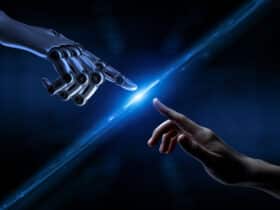Businesses these days are constantly adjusting to the changing tech landscape, which means that human resource (HR) management is also evolving. The emergence of cloud-based HR systems has transformed how organisations handle their workforce, and now artificial intelligence (AI) and automation are set to push this evolution further. In this article, we delve into the latest and future trends in cloud-based HR with a focus on how AI and automation are being integrated into HR processes.
Making Recruitment More Efficient with AI
HR departments often find recruiting new talent time-consuming. Tasks like screening resumes and assessing candidates can be quite labour-intensive. AI-driven recruitment software such as Happy HR, which is an HRIS software Australia knows by name, can streamline these processes significantly. By matching resumes to job requirements and using machine learning algorithms to identify candidates, AI helps reduce bias and boost efficiency.
Improving Employee Onboarding Experiences
Employee onboarding sets the stage for the journey in a new workspace. It frequently lacks personalization and interaction. AI technologies such as chatbots offer a great solution by providing responses to common questions and guiding new employees through their initial days. These smart assistants can assist employees in understanding company policies, accessing benefits information, and smoothly transitioning into their roles. Happy HR helps streamline the process.
Enhancing Talent Management through Data Analysis
While data analytics has proven beneficial in business sectors, its potential impact on HR functions is now gaining recognition. By utilising cloud-based systems that collate data from sources like performance evaluations, employee feedback surveys, and productivity indicators, organisations can derive insights about their workforce. These insights facilitate improved talent management decisions, such as identifying promising employees for career advancement opportunities or pinpointing trends that necessitate action for employee contentment.
Personalizing Learning and Development Opportunities
One-size-fits-all learning programs often fail to effectively address skill gaps and learner preferences. Nevertheless, AI-powered platforms empower employees to customise their learning journeys based on their requirements. These platforms support learning and professional development by analysing employee data and providing personalised recommendations for training sessions, courses, and resources. In the future, it will definitely shape the business landscape.
Streamlining Routine HR Tasks
HR departments frequently grapple with duties that consume their time and impede strategic endeavours. Automation technologies have the potential to transform HR operations in areas such as payroll processing, leave management, and benefits administration. This enhances efficiency and also diminishes the manual errors commonly associated with such tasks.
Enhancing Employee Experience with Voice Technology
The prevalence of assistants such as Amazon’s Alexa or Apple’s Siri has made employees more comfortable with voice-activated AI technology. Incorporating voice tech into work settings via cloud-based HR systems allows employees to easily access HR information while on the move. Whether it involves checking leave balances, adding events to a calendar, or even submitting requests through voice prompts, these applications offer a more user-friendly experience for employees and make for easy access to information.
Ensuring Data Security and Privacy
As HR departments increasingly turn to cloud-based HR systems for storing and processing employee data, maintaining security measures is crucial. By integrating AI into cybersecurity protocols, organisations can actively monitor user activity across their networks, identify irregularities, and respond promptly and in time to protect information. Utilising advanced encryption algorithms to secure data transmissions helps ward off both external threats
Empowering Employee Self-Service with AI Chatbots
In the past, employees typically relied on HR staff to address their questions and resolve problems. However, with the introduction of AI chatbots in cloud-based HR systems, self-service capabilities for employees have taken a step forward. Intelligent chatbots have the ability to understand and respond to natural language queries, helping employees with tasks such as checking their payslips, updating information and accessing HR policies. By enabling employees to find solutions on their own, HR departments can concentrate on other more pressing tasks.
Predictive Analytics for Employee Retention and Succession Planning
Recognizing attrition or planning for workforce requirements has always been a key aspect of HR planning in businesses. Nowadays, with cloud-based HR systems incorporating AI-driven predictive analytics tools, organisations can predict employee attrition rates and pinpoint potential employees for succession planning purposes. By utilising data like performance records and career paths, predictive models can be developed to support employee retention efforts and ensure transitions during succession planning processes.
In Conclusion
Cloud-based HR systems have transformed human resource management by utilising advancements in AI and automation technologies. From streamlining recruitment processes to enhancing the onboarding experience, AI-powered solutions integrated into cloud-based HR platforms are reshaping how organisations function to optimise workforce efficiency. As technology evolves rapidly, implementing cloud-based HR systems that can adapt to trends becomes crucial not only for large corporations but also for small businesses striving to remain competitive in an increasingly digital environment.


















